
Go and goes grammar 320321Go and goes grammar Pixtabestpict8gro
Past Participle of "Go": "Gone" As we previously stated, the past participle of a verb indicates an action that was started and completed entirely in the past.While regular verbs have a predictable pattern (adding -ed or -d), irregular verbs do not.. A past participle is used in all perfect tenses.The past participle of go is gone.. Jemma had gone to the mall.

Past Participle Grammar book, Teaching grammar, Grammar
What is the past tense of "go?". Most commonly, the past tense of the word "go" is "went.". Although the word form will change based on its participle. And the sentence where it's used. For example, referencing "go" in the present participle form will change it to "going," but in the infinitive form, will be "go.".

Simple Past Form of the Verb DannyrilMcgrath
Table of irregular verbs - English Grammar Today - a reference to written and spoken English grammar and usage - Cambridge Dictionary

Meet Past Participle Form Hybrid crinum is Good
What is the past participle of "go"? The past participle of the verb "go" is "gone.". As an irregular verb, "go" doesn't form its past participle by adding the suffix "-ed.". The past simple form of "go" is "went.".
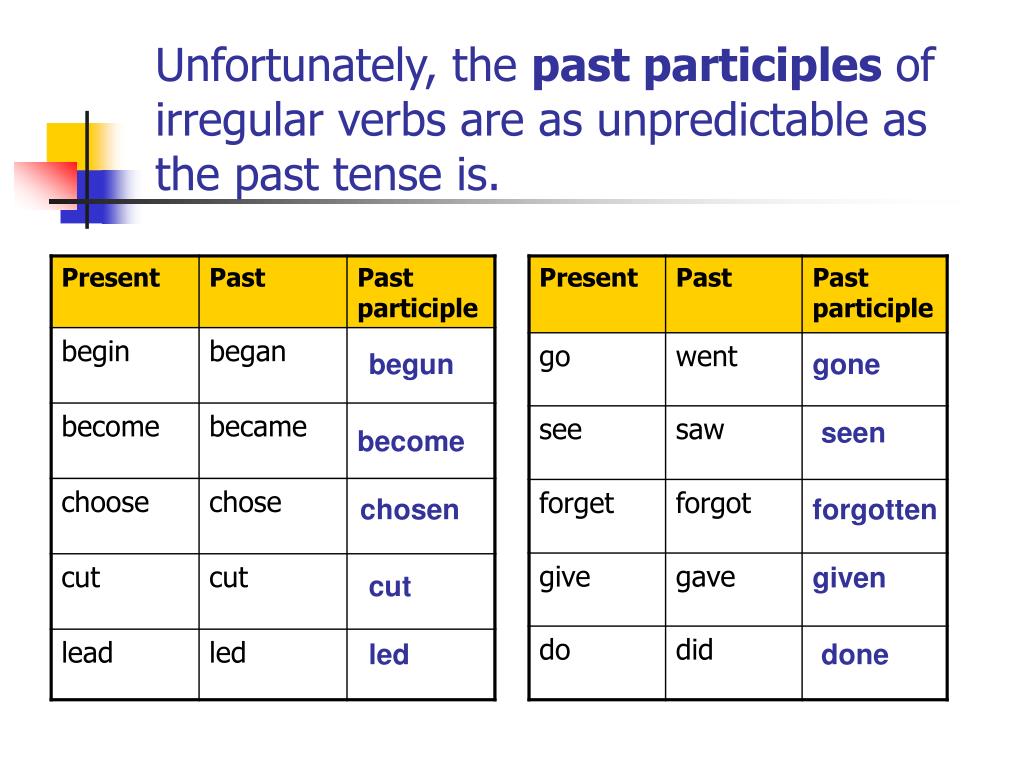
Past Participle
Past participle of go. Past participle . gone [ɡɒn] You are look at the page for irregular verb go. Participle of the irregular verb [go] The past participle is one of the most important parts of English grammar. It's used to express perfect tenses and to form the passive voice.

Here we go!! PAST PARTICIPLE IRREGULAR VERBS LIST
To Go Conjugation; To Go Infinitive: to go Gerund: going Past participle: gone Simple past: went Irregular forms Auxilliary verb Spelling change Use contractions. Positive Negative. Indicative. Positive Negative. Present. I go I go: you go you go: he/she/it goes he/she/it goes:
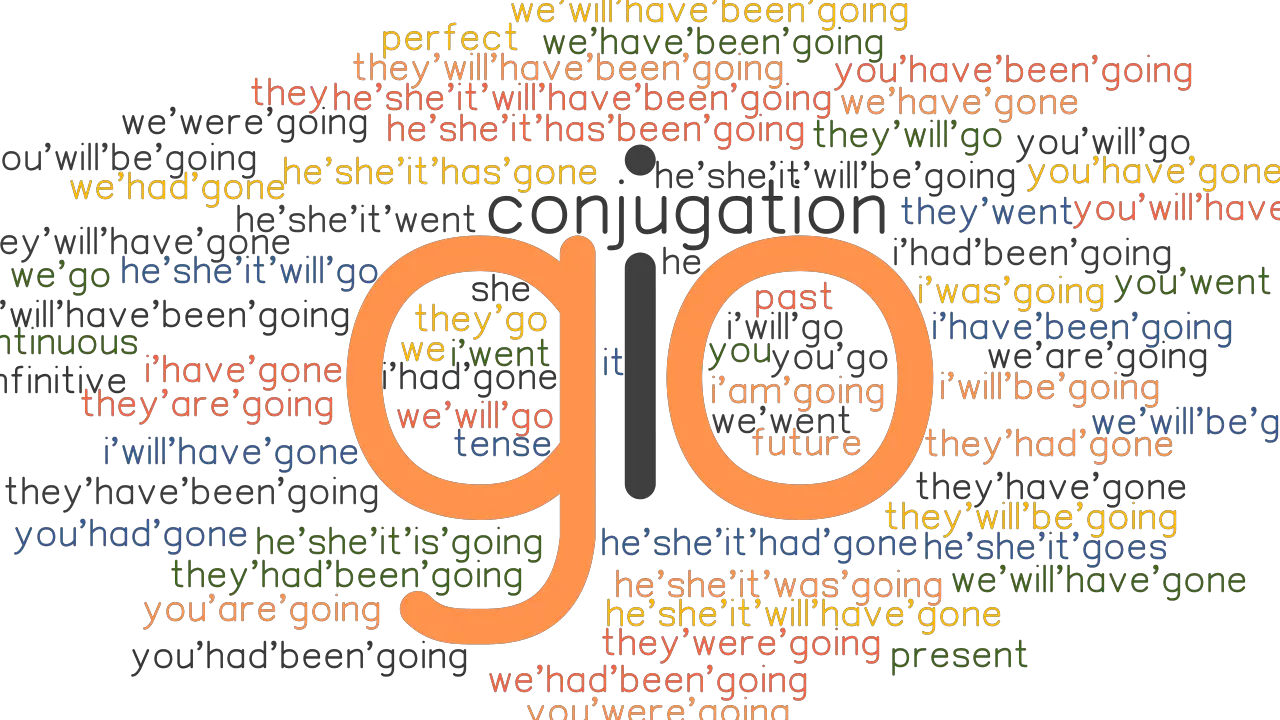
Go Past Tense Verb Forms, Conjugate GO
go - model verb Verbs that follow this model: forego forgo outgo undergo Firefox and Chrome users: install a shortcut (Firefox or Chrome) then type "conj go" in your address bar for the fastest conjugations. go 'go' is the model of its conjugation.
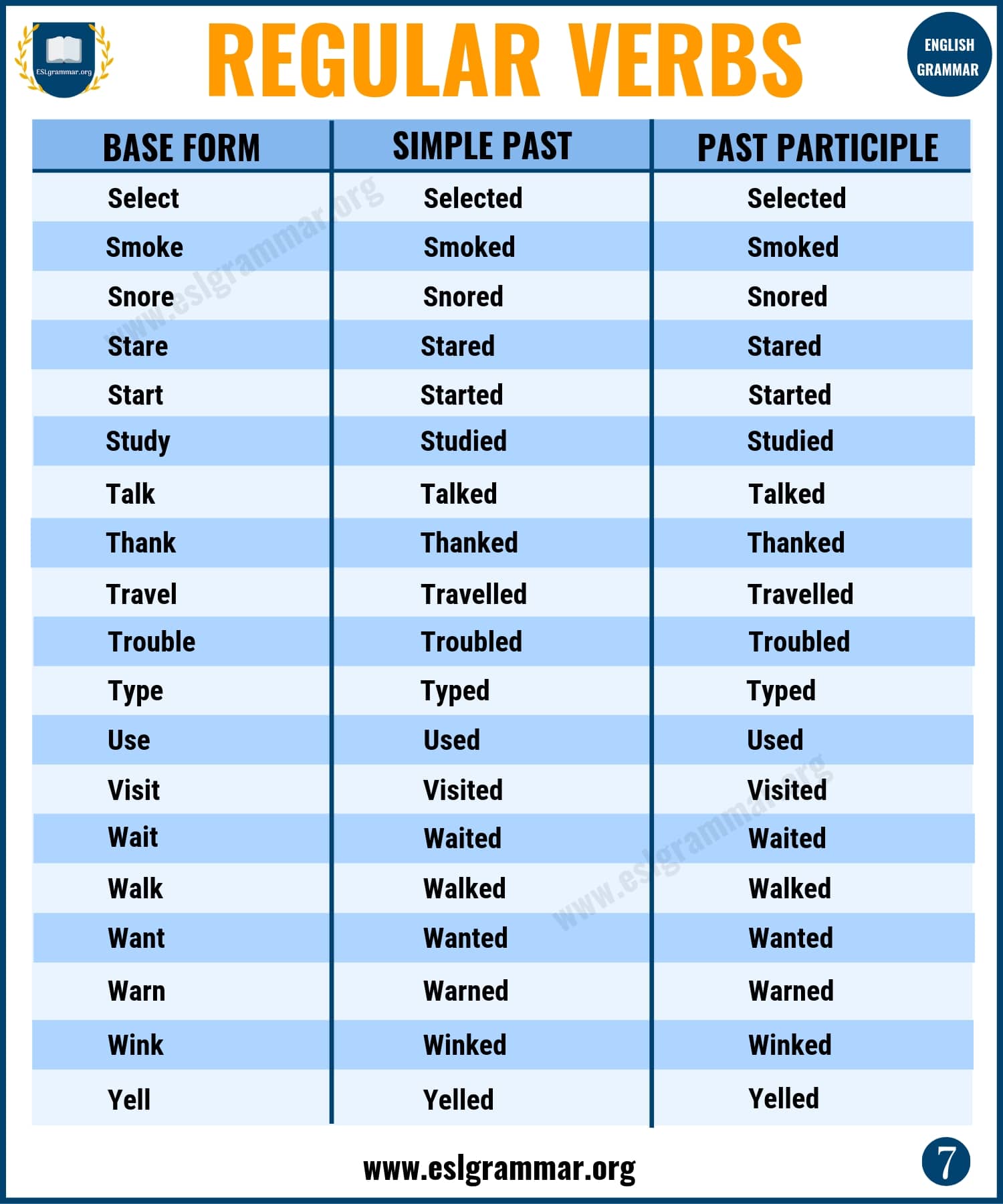
VERBS SIMPLE PAST AND PAST PARTICIPLE English Quizizz
Conjugate the English verb go: indicative, past tense, participle, present perfect, gerund, conjugation models and irregular verbs. Translate go in context, with examples of use and definition.

Animate Past Tense, V1 V2 V3 V4 V5 Forms of Animate, Past Simple and
⚡ Conjugation of the English irregular verb, past tense : 茶 go went gone - LEARN IV.com Learniv.com > en. The past participle is one of the most important parts of English grammar. It's used to express perfect tenses and to form the passive voice. It's also a useful tool for writing sentences that describe actions that started in the.

Past Tense Of Go, Past Participle Form of Go, Go Went Gone V1 V2 V3
Gotten is a past participle of the verb get. You could say, for example: The wind's gotten stronger. (present perfect) He hasn't gotten a job yet. (present perfect) I was a bit ill but I've gotten much better. (present perfect) I was tired because I hadn't gotten any sleep. (past perfect) There is another past participle of get - got.

Go Verb Forms Past Tense & Past Participle »
The phrase refers to something that occurred in the past. Instead, the past tense of "go.". Goes: Less common than "gone/went/going," remember the phrase, "The merry-go-round goes round and round.". This is the third-person singular tense of the word "go.". Additionally, it is the plural for the word "go.". Different tenses.
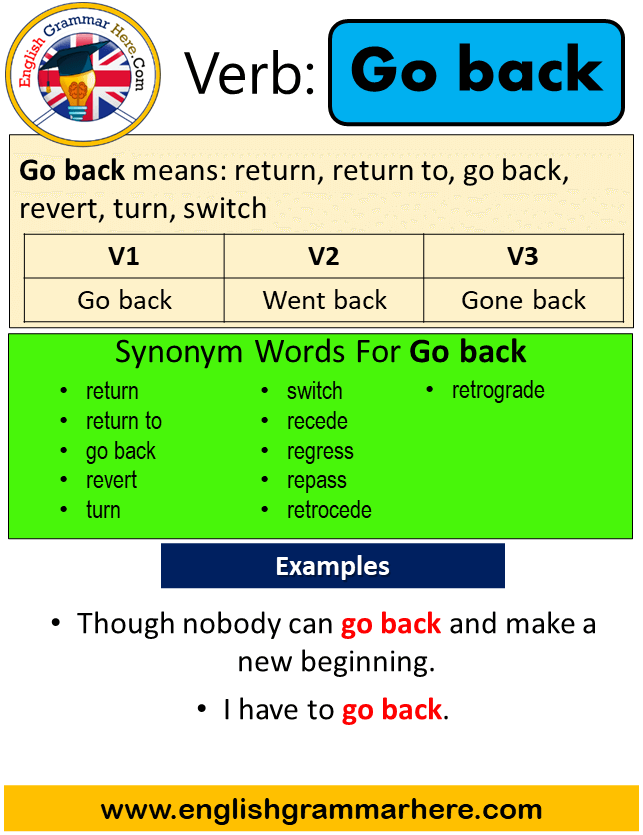
Go back Past Simple in English, Simple Past Tense of Go back, Past
A past participle is a word derived from a verb that can be used as an adjective, to form perfect verb tenses, and to form the passive voice. It is one of two types of participles, along with present participles. The past participles of regular verbs are usually formed by adding the suffix "-ed" (e.g., "learn" becomes " learned ").

Simple Past Tense of Go RyliehasShort
A participle is a form of a verb used as either an adjective ("the hidden treasure") or a part of certain tenses ("we are hiding the treasure"). Participles have two different types, the present participle and past participle, and participles used as adjectives can form a longer participle phrase (" Hidden in the bushes, the treasure was hard to see").

Simple Past Tense of Go
(This means that "go" does not form its simple past tense or its past participle by adding "-ed" or "-d" to the base form.) The Five Forms of "To Go" Form go Alternative Name; Base Form:. The tables below show how "go" conjugates in the past, present, and future tenses. Past Tenses. Person Simple Past Past Progressive Tense Past Perfect.

Listofverbs Verb Past Past Participle Meaning ED 1 Go Went Gone Ir
The past simple and the past participle of go. Conjugation of the verb go: Base Form/Infinitive without 'to': go. Past Simple: went. Past Partciple: gone. Present Partciple: going. Third Person Singular: goes. Definition: 1. To travel or move from one place to another. 2. To leave a place; depart.
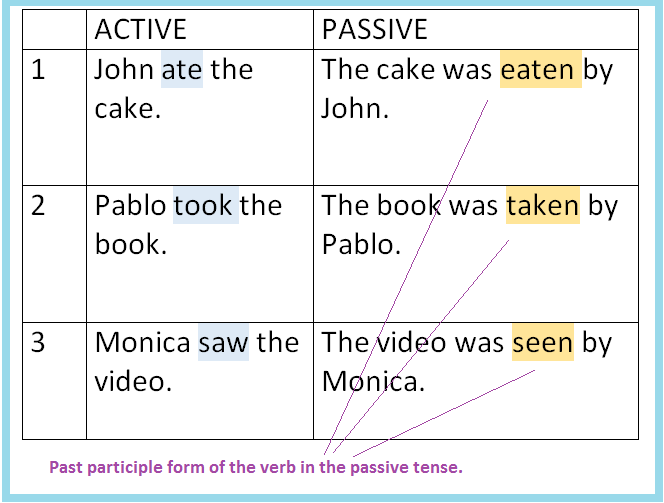
Past Participle Of Eat / V1 V2 V3 List in English English Grammar
A past participle is a word formed from a verb that can be used as an adjective or to form verb tense. Most past participles end -ed, -d, -t, -en, or -n.. It's your go! Select the past participle in the following sentences. Video Lesson. Here is a video summarizing this lesson past participles.